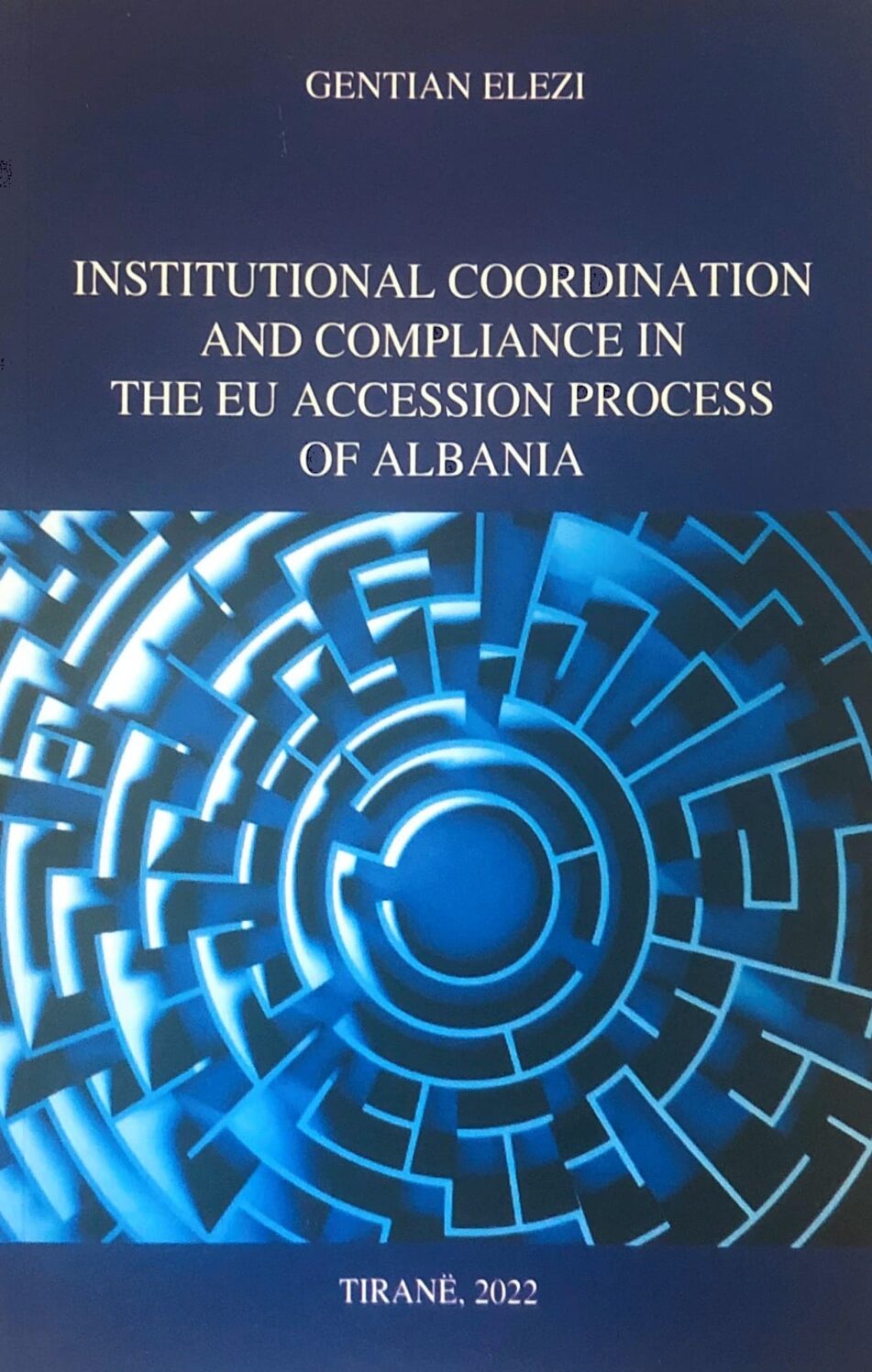The purpose of this book is to explain the institutional coordination and its challenges, in the process of implementing the transposed EU policies and legal acts in Albania. As the country moves closer to EU membership, the challenges of implementing the policies adopted in this process have increased, representing a major obstacle. The contribution of the analysis and findings of this study are practical and theoretical. On the one hand, it aims to reach some consolidated conclusions on the institutional factors and practices that influence implementation performance. On the other hand, it also contributes to the wide field of implementation studies by enriching it with an unexplored case such as Albania.
The study attempts to analyze the institutional interaction and policy implementation process by focusing on the policy formulation phase and its shortcomings. More specifically, it is based on theoretical models for understanding the role of three main factors in policy design: administrative and coordination capacities, the effectiveness of the involvement of non-state actors and the contribution of EU representatives and experts. Due to the theoretical propositions and the nature of the selected variables, the type of approach adopted is qualitative research. The research strategy in this case study uses two main methods: triangulation and process tracing. Process tracing is used to analyze and understand policy from the design stage to its practical implementation.
Four policy areas or chapters of the acquis were selected for the study: free movement of goods, competition, food safety and the environment. For each of the sectors, two specific directives were chosen as examples to be explored in depth throughout the policy cycle. Based on findings from the four areas, the study draws broader conclusions on institutional coordination and policy implementation challenges facing the country.
A new and important contribution to the studying of Albania’s EU integration process

(Visited 163 times, 1 visits today)





